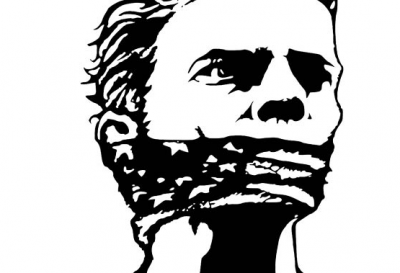Ireland’s ‘Hate Speech’ Laws – Censoring Ukraine Truth?

All Global Research articles can be read in 51 languages by activating the Translate Website button below the author’s name.
To receive Global Research’s Daily Newsletter (selected articles), click here.
Click the share button above to email/forward this article to your friends and colleagues. Follow us on Instagram and Twitter and subscribe to our Telegram Channel. Feel free to repost and share widely Global Research articles.
***
Last month, global attention was drawn to the southern Irish State’s proposed ‘hate speech’ laws, owing to online commentary on the new bill from high-profile figures such as Elon Musk, Donald Trump Jr. and Jordan B Peterson.
Allowing for someone to be convicted for merely possessing ‘hateful’ material – which could be something as simple as an internet meme – without even distributing it, the new legislation, if passed, will effectively create thought crimes in what is a supposed democratic western state.
Domestic critics of the bill have expressed concern that it will stifle debate on the introduction of gender ideology to the school curriculum, citing the recent case of Enoch Burke as an example. Burke, a teacher at the prestigious Wilson’s Hospital boarding school in County Westmeath, was imprisoned for three months last year over his refusal to not attend the school following his suspension over a dispute relating to the use of ‘they/them’ pronouns on a student.
There have also been concerns expressed that the new legislation will be used to censor critics of the 26-County State’s immigration policy.
Since last November, using emotive coverage of the war in Ukraine as a cover, the southern Irish government has placed hundreds of male migrants into wildly unsuitable locations such as an inner city office block and children’s primary school, leading to protests by local residents over the lack of consultation with community representatives beforehand, the unsuitability of the chosen locations, and the lack of transparency on whether those placed in said locations had been vetted or not.
Protests, that in a similar vein to last year’s Canadian Freedom Convoy, have drawn widespread condemnation from the 26 County political establishment as being ‘organised by the far-right’, with Leo Varadkar, like Justin Trudeau, also being a WEF ‘Young Global leader’.
The spotlight was shone once again on the new legislation this week when Pauline O’Reilly, a Senator and chairwoman of the ruling coalition’s Green Party, announced, in dystopian fashion, that the purpose of the bill was to ‘restrict freedom for the common good’, her comments drawing attention from as far afield as Fox News and acclaimed US journalist Glenn Greenwald.
One facet of the new legislation that has been overlooked by most onlookers however, is the section related to the denial or condoning of ‘war crimes’, which with an increased push amongst the 26 County political establishment for the State to join NATO amidst the ongoing Russian operation in Ukraine, may soon become one of its most relevant.
Since the launch of the Russian intervention last February, the southern Irish State has, in lockstep with the rest of the collective west, condemned what it calls an ‘unprovoked invasion’.
What has been conveniently omitted from this description however, is the almost nine years of western provocations that preceded it, beginning with the November 2013 US and British-instigated Maidan coup, the use of anti-Russian extremist elements such as Right Sector and Azov Battalion to wage a bloody war on the predominantly ethnic Russian Donbass region, and the revelation that the US was producing bioweapons on Russia’s borders.
Key details related to the conflict that, under the new legislation, could soon be made illegal to publicly disclose in the 26 County State.
Indeed, this would tie in with Leinster House’s desire to join NATO, a view not shared by the majority of the Irish public. This has not hindered the 26 Counties anti-Russian policies however, with a number of Russian diplomats expelled in the weeks following Moscow’s intervention; a step noticeably never taken by the southern Irish state towards US Diplomats over Washington’s conflicts in Iraq and Syria, or indeed, British Diplomats over British Intelligence’s role in the 1974 Dublin and Monaghan bombings.
Now, with the strong possibility that a Nord Stream-style false flag attack off the Irish coast is imminent, the criminalisation of facts related to Russia’s military operation in Ukraine, may soon be used to clear the path towards NATO membership for the south of Ireland.
*
Note to readers: Please click the share button above. Follow us on Instagram and Twitter and subscribe to our Telegram Channel. Feel free to repost and share widely Global Research articles.
Gavin O’Reilly is an activist from Dublin, Ireland, with a strong interest in the effects of British and US Imperialism. Secretary of the Dublin Anti-Internment Committee, a campaign group set up to raise awareness of Irish Republican political prisoners in British and 26 County jails. His work has previously appeared on American Herald Tribune, The Duran, Al-Masdar and MintPress News. He is a regular contributor to Global Research. Support him on Patreon.
Featured image is from TruePublica

